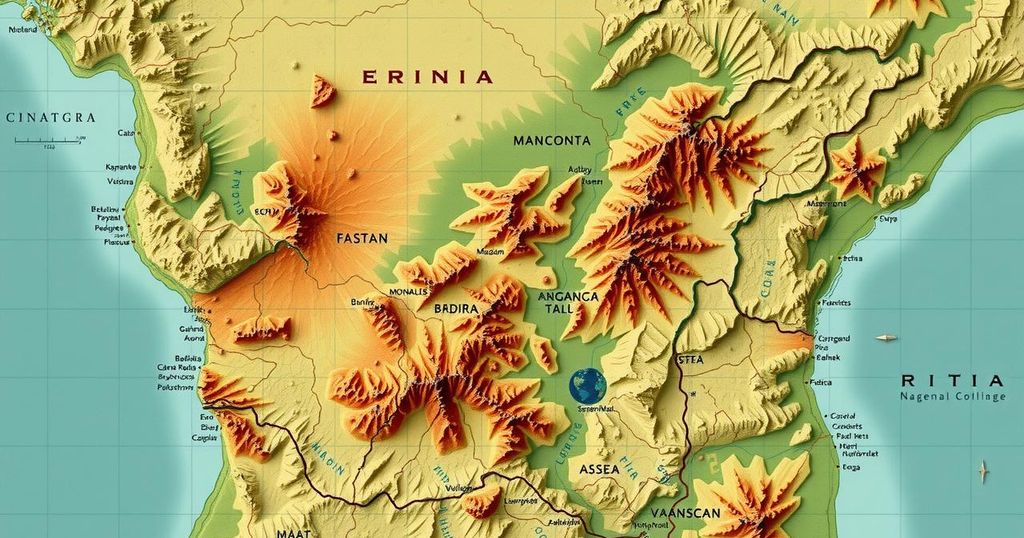Renewed Conflict in Eastern Congo: A Summary of Key Insights

The conflict in eastern Congo, fueled by Rwandan-backed insurgents, has escalated, exacerbating a humanitarian crisis. Key points of discussion from a recent podcast include the intensifying violence, the economic motivations behind the war, and the ineffectiveness of political and military resolutions. Mvemba Dizolele highlights the urgent need for effective solutions in light of the region’s complexities.
The resurgence of Rwandan-backed insurgents in eastern Congo has intensified a longstanding conflict characterized by ethnic rivalries, the struggle for mineral wealth, and issues of political representation. In a recent episode of “The President’s Inbox,” Jim Lindsay interviewed Mvemba Phezo Dizolele, the Director of the Africa Program at the Center for Strategic and International Studies, highlighting the ongoing violence between the M23 rebel group and the Democratic Republic of the Congo’s government.
The M23 rebel group has recently taken control of Goma and Bukavu, the two largest cities in eastern Congo, which has ignited a humanitarian crisis. Rwanda, predominantly ethnic Tutsi, allegedly supports the M23 by arming and financing them, which has resulted in an estimated 3,000 to 4,000 Rwandan troops participating in operations against Goma. The M23 is engaged not only with the Congolese government forces but also with the Democratic Forces for the Liberation of Rwanda (FDLR), a Hutu faction involved in the 1994 genocide. According to Mvemba, about two million Hutu Rwandans, including the Rwandan army, fled into Congo following the genocide. Since Rwanda’s initial intervention in 1996, conflict in eastern Congo has led to the following grievous outcomes: six million casualties, which constitute the deadliest toll since World War II.
The motivations behind the ongoing conflict stretch beyond ethnic disputes. Although the M23 emerged in 2012, accusing the Congolese government of collaborating with the FDLR to oppress Tutsis, financial interests are fundamental to the violence. The eastern region of Congo is rich in minerals essential for global industries, particularly electronics. Mvemba illustrated the economic dynamics at play, stating, “there is a war economy on both sides of the border.” Evidence suggests that Rwanda has exploited these resources to enhance its own economy, with international entities unknowingly facilitating this exploitation. For instance, the European Union signed a trade agreement with Rwanda in early 2024, which is now under review following reports of Congolese resource extraction.
Political solutions and increased military operations are unlikely to bring resolution to the conflict. The Congolese government has struggled to address the diverse needs of its constituents and has abandoned critical reform processes. Additionally, ongoing shortcomings of the UN peacekeeping forces in curbing the M23 resurgence are evident. Fragmentation within regional organizations, including the East African Community and the Southern African Development Community, complicates mediation efforts. Mvemba noted the current geopolitical landscape: “The M23 is primarily seen as a Tutsi group, Rwanda-backed… and they have no allies inside Congo to help them this time.” With over one hundred armed groups active in the region and a lack of decisive international intervention, enduring peace remains elusive.
The conflict in eastern Congo, driven by Rwandan-backed insurgents and compounded by ethnic tensions and resource exploitation, continues to exacerbate a humanitarian crisis. The lack of effective political solutions and the inability of peacekeeping forces to stabilize the region underscore the complexity of the situation. As the international community grapples with these challenges, lasting peace appears to be a distant goal.
Original Source: www.cfr.org








